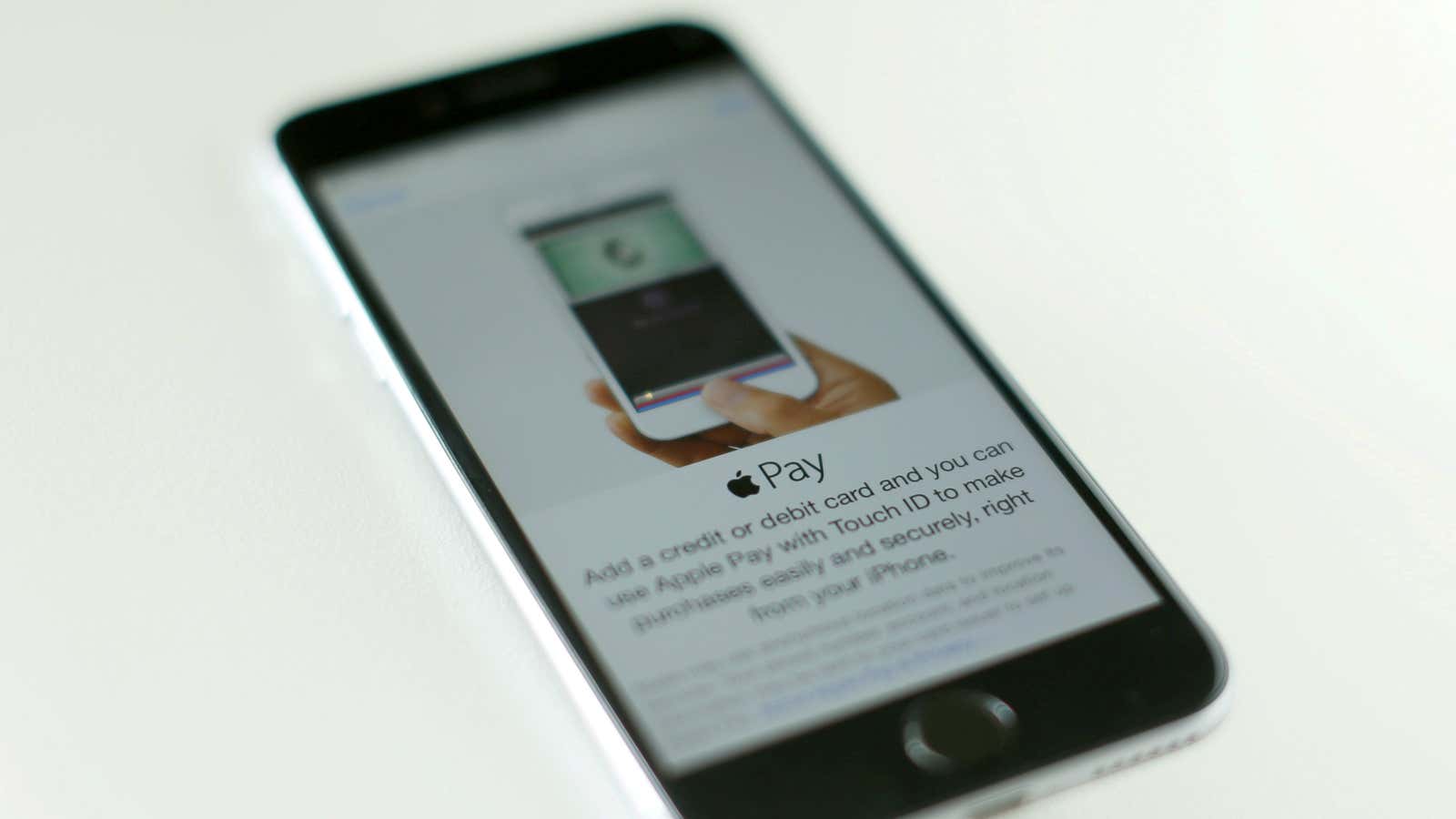Apple is facing growing pressure from European officials to open up access to a key payment technology used on its devices. As the iPhone maker seeks to keep a grip on the chip, which is vital to its Apple Pay service, the American tech giant is reportedly getting an assist from US diplomats.
The latest clash over Apple Pay took place in Germany this week, where lawmakers passed a series of anti-money laundering measures. The laws contained a section that would require tech companies to open up their interfaces for payment services, in return for a reasonable fee, according to Reuters. Multiple officials complained that the US embassy and Apple had tried to intervene, unsuccessfully, to prevent that portion of the law from passing, according to Germany’s Deutsche Welle.
Apple blocks other companies from accessing the iPhone’s near-field communication (NFC) chip, which is used for contactless payments. Other parties can make mobile wallets for the iPhone using QR codes, for example, but only Apple Pay can utilize NFC payments on Apple’s device. Contactless payments are growing in popularity in Europe, while QR codes haven’t caught on in most places (aside from China and parts of the Nordics).
Academics, lawyers, and executives widely see Apple’s control over the iPhone NFC chip as a way to block competition and make Apple Pay more popular, they have told Quartz. Apple argues that its policies are for security against hackers and to make the user experience as smooth as possible.
This week Quartz published a field guide about Taming Big Tech, which is available exclusively for members. Support our journalism by becoming a member today.
The iPhone maker complained that the German legislation was introduced suddenly. “We created Apple Pay to be the world’s most private and secure payment system,” an Apple spokesperson said in an email. “We believe deeply in competition and know our customers have many options for credit cards and payment methods, so we’ve worked hard with thousands of banks all over the world to make Apple Pay the kind of seamless and convenient payment and wallet system that our users want and expect.”
Payment company executives have grumbled to Quartz about Apple’s stranglehold on NFC. But for the most part, they’re not willing to pick a fight with a company that has a massive cash hoard and, according to reports, tight connections with US government officials.
In the meantime, the European Commission is also probing the issue, and has requested information from market participants about Apple Pay. It is the second time that European officials have debated the mobile wallet’s impact on the market. Its earlier, preliminary view was that there was sufficient competition.
The EU is revisiting Apple Pay after receiving “many, many” concerns about the payment service, according to Margrethe Vestager, Europe’s competition chief. In a press conference earlier this month, she said officials were in the process of asking further questions about its effects on competition. “People see it becomes increasingly difficult to compete in the market for easy payments,” she said.
With additional reporting by Max de Haldevang.
